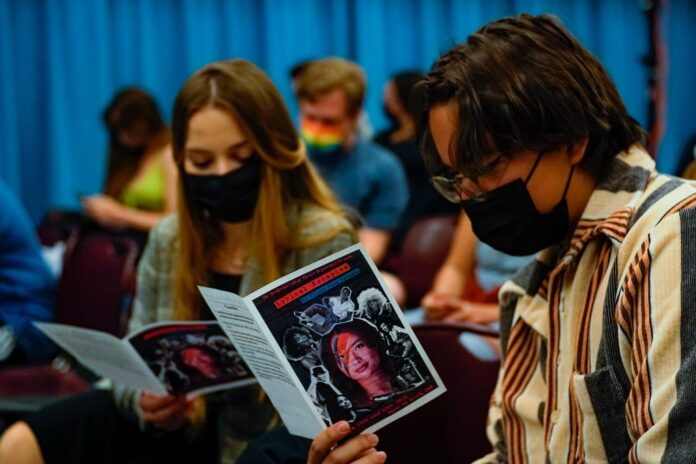
Occidental’s Theater and Performance Studies senior comprehensive project presentations largely focused on identity, isolation and community March 24–27. The pieces were the final projects of four seniors: Noa Carlson (senior) with her original solo play “A Land Unknown, Remembered.,” Natalya Nielsen (senior) with her original solo work “Sometimes I pretend,” Hilary Kang Oglesby (senior) with her solo musical theatrical piece “Lyrical Escapism” and Kamilah Cooper-Charles (senior) as director of a performance of “What to Send Up When it Goes Down” which was written by Aleshea Harris. The pieces were performed in locations around campus, including the Upper Stearns tent, FEAST Garden, Keck Theater and the Hillside Theater, all free to attend.
“A Land Unknown, Remembered.”
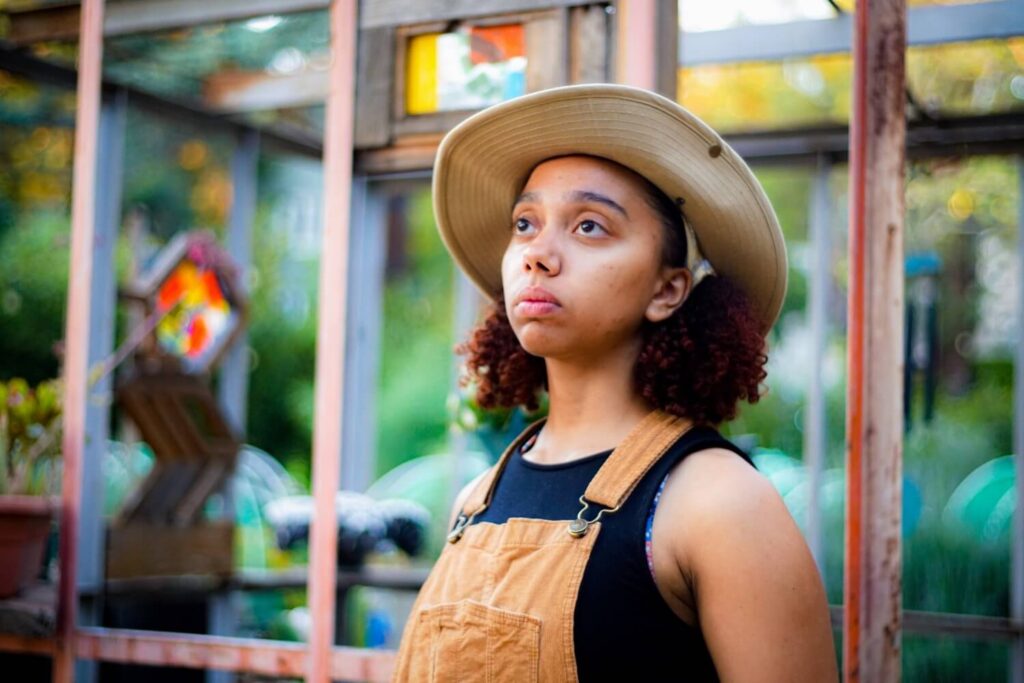
“A Land Unknown, Remembered.,” written, directed and performed by Carlson, thematizes creation stories, intertwining a native tribe’s creation story of the land and the history in Carlson’s own family, according to Carlson. First, the play tells the creation story of the San Joaquin Valley by the Yokut people, who are native to the this land, where most of the piece takes place. Then the play transitions to stories from Carlson’s family members that connect them and herself to that land, as well as to land in general more deeply is told, according to Carlson.
“Stories and memories connect us back to the land we either were born in, or the land that connects us back to our familial roots,” Carlson said.
Carlson said she has lived in the same house in Minnesota her whole life but had never felt connected to the place — until she found new significance in the land around her during the COVID-19 pandemic.
“It took me expanding myself into the neighborhood and starting to walk around, really taking in, observing, listening to all of the sounds and the people and the nature that was around my neighborhood that I didn’t really appreciate or notice,” Carlson said. “And taking daily walks made me really establish myself in the place in a way I never had before.”
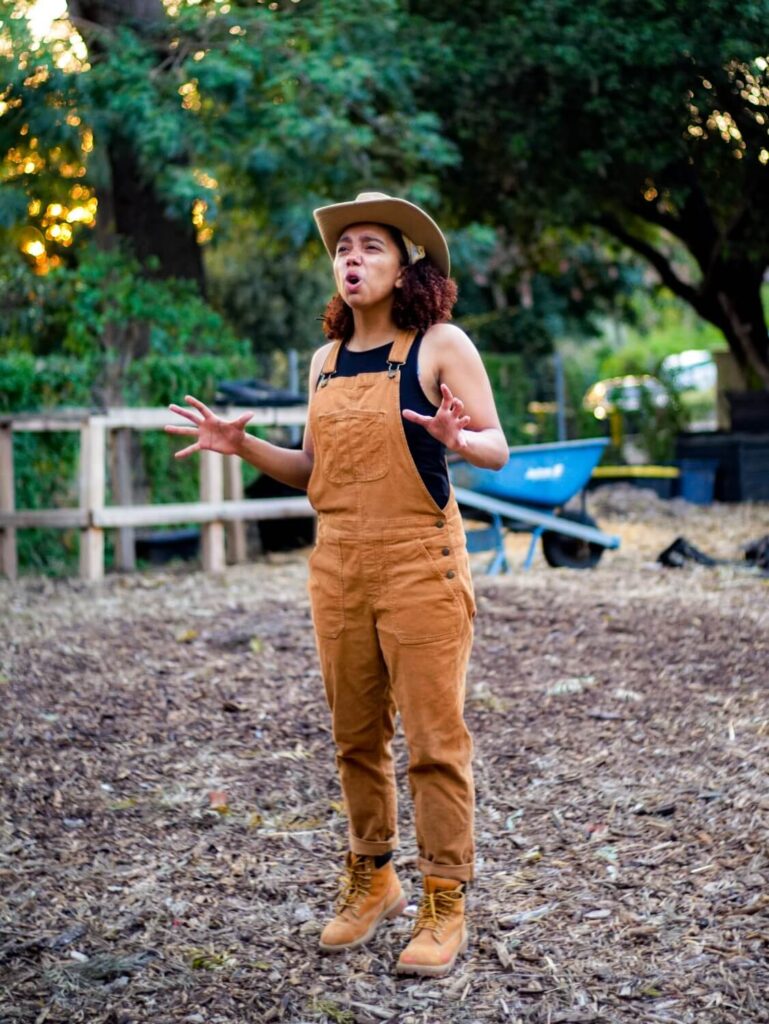
According to Carlson, her character takes a similar journey in the play. Carlson said she interviewed her family members about their connection to the land of the San Joaquin Valley for inspiration — particularly their tales of moving to Fresno, CA, from Oklahoma during the Great Depression and working in cotton, watermelon and grape fields to support themselves. In her play, Carlson said she took her newfound appreciation for the connections between history, family and land and placed that interest into the context of her life in Minnesota.
“It takes this journey, this remembrance of stories that [the main character] never knew she had within her, to make her realize that there’s such complexity to what land means and what it takes for land to become home,” Carlson said.
Carlson said she was initially hesitant about the performance aspect, but still realized that the piece had to be a solo show to meaningfully tell the story in a way that preserved her family’s personal words and stories through her own enactment.
“I think that to give those words away to somebody else, it would lose its purpose, which is partially the healing process for me,” Carlson said.
“Sometimes I Pretend”
Nielsen –– writer, director and actress in her one-woman show “Sometimes I Pretend” –– said she first came up with the idea for her play considering scenes she wanted to perform from her favorite shows, movies and songs. The play is about a girl alone in her room stepping into and out of various imaginary scenarios, Nielsen said.
“I’ve always been a person who loves being alone in my room,” Nielsen said. “Then during the pandemic, we were all just alone in our rooms so much that it started to feel different. So that is kind of what inspired me — moving home into my childhood bedroom, and feelings of isolation. Also, still feeling the nostalgia of loving being in my room as a little girl.”
The pieces she chose to incorporate are significant to her life, including her favorite moment from “Pride and Prejudice” –– the romantic climax where Elizabeth finally shares Mr. Darcy’s love — and a song she loved in middle school, “Primadonna” by Marina and the Diamonds.
Nielsen said her play develops the theme of identity without community — how identity as a performance reacts to isolation.
“It is this moment of suspending disbelief and knowing that I am talking to a room full of people, but imagining that maybe it is just me sitting there in my room,” Nielsen said.
“Lyrical Escapism”
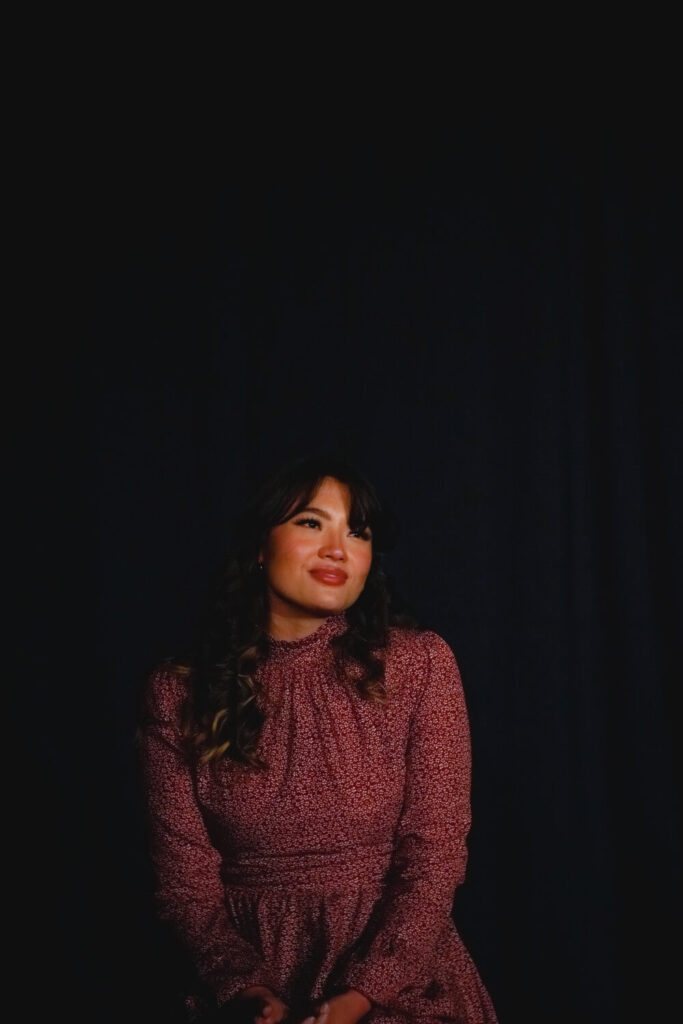
Oglesby said she was originally planning to perform a collection of songs without much narrative connection for her senior comprehensive project. According to Oglesby, when her theater teacher David Crabb encouraged her to see what kind of narrative and cohesion she could draw out of her collection, “Lyrical Escapism” was born.
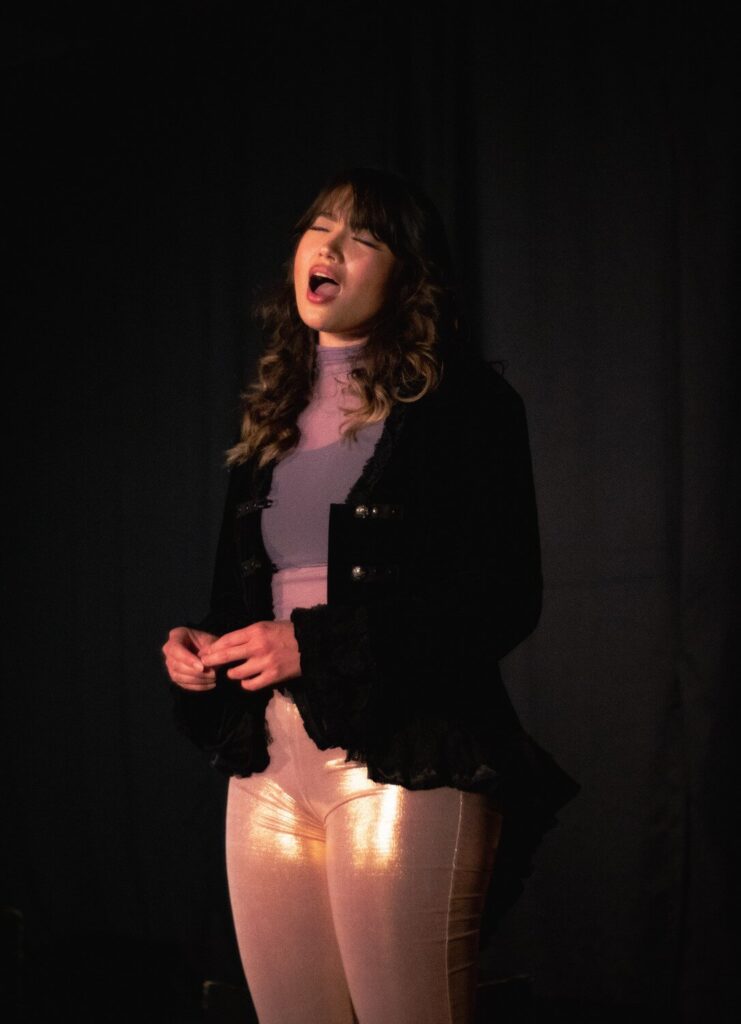
“I had this moment where I was literally on the treadmill, and I had a vision of singing ‘Pure Imagination’ to my 11-year-old self,” Oglesby said. “That sparked this whole narrative that I then wanted to create.”
Oglesby said the narrative focuses on a particular time during middle and high school, when she used music and performance to cope with her life.
“Music has brought me a sense of escape — a chance to break away from the things that I was experiencing and not really prepared to deal with,” Oglesby said.”[The narrative is about] looking back at my 11-year-old self with a renewed sense of forgiveness for her and acceptance.”
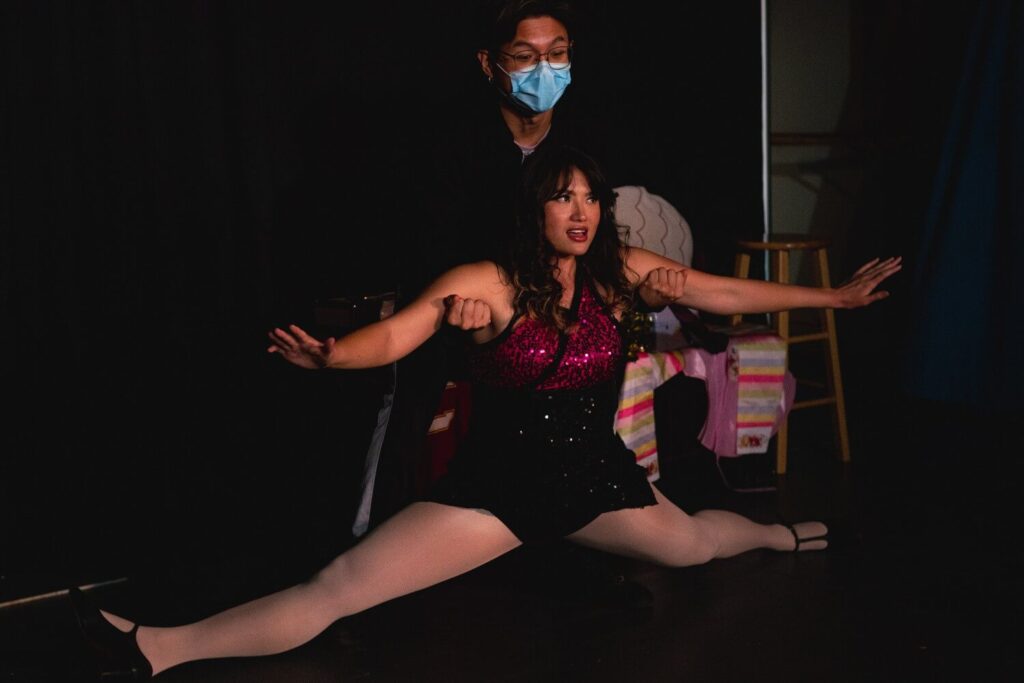
In the process of creating the play, she realized for the first time the extent of her lack of self-forgiveness, her anger and unkindness toward memories of her younger self.
“This has actually been a great way to look at the things that have been important in my life, and how I’ve looked back at certain parts of my past in a way that was damaging to myself,” Oglesby said. “I hope that maybe people feel inspired to look at their past selves with a sense of forgiveness.”
“What to Send Up When It Goes Down”
According to director Cooper-Charles (senior), Alesha Harris’ “What to Send Up When It Goes Down,” has significance far beyond its capacity as a mere play or assignment.
“This play helped me process and put words to some of the most indescribable feelings I’ve had in my four years at Occidental as a Black person, as a Black student, witnessing the things that have happened, continue to happen and will always happen to Black people on this campus,” Cooper-Charles said.
She said the piece is not merely a play, but a ritual. It was designed as a love letter to Black people –– for directors like herself to take and apply to their particular contexts, and give all Black people in need of communal healing the tools to be able to do so freely, Cooper-Charles said in her playbill.
“On the first night, Alika [Williams] spoke to the death of Ilah Richardson,” Cooper-Charles said. “On the second night, Alika spoke to the death of Jaden Burris, and, albeit briefly, succinctly wrapped up what about those two events in the spring of 2020 were avoided by the institution, were made small or reduced by the explanation given to us by the institution and were unfinished do to the lack of substantial response given by the institution.”
It was important to her to have a ritual for those two events, almost two years afterwards, because it was never done, Cooper-Charles said.
“I feel, I felt and I still feel really strongly –– there was never an opportunity for those of us left behind to properly lay our people to rest, in our terms, in our way, and so I wanted to do that, through theater,” Cooper-Charles said.
According to Cooper-Charles, the play puts real lived experience on the stage. She said that she and the cast members connected with the work even before they started rehearsals.
“I remember so many people [cast members] telling me ‘I’ve said this, this is me, this role is me, I feel this way, I’ve said this to people, people have said this to me,’” Cooper-Charles said.
Because of the play’s truth to lived experiences, the audience cannot distance themselves from the production, according to Cooper-Charles. She said people like to think of racism, sexism and oppression in various forms as separate from themselves.
“It might not actually be that you are just a witness to those things,” Cooper-Charles said. “Perhaps, and it’s very likely, that you enact these things in your daily being unknowingly, all of the time.”
Cooper-Charles said she chose the choreography, music and staging of the play, never watching another production of the piece because she wanted this production to remain her personal creation. The play also gave something to her, she said.
“It has been, in many ways, my saving grace here,” Cooper Charles said. “It’s given me so much language with which to describe my experience, so many new pieces of vocabulary, so many new ways of expressing what it is to be Black in a place that has condemned Blackness.”
This article was updated at 1:26 p.m. April 6 to include quotes and additional information from Kamilah Cooper-Charles.
![]()






























